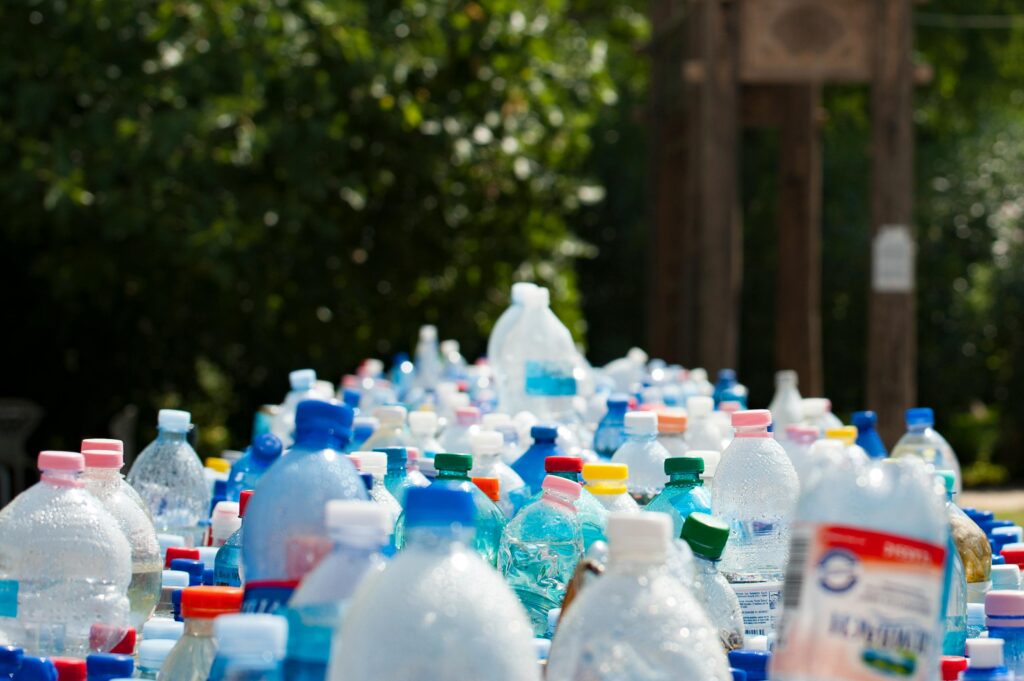In the modern world, recycling and trash management have become some of the most promising business sectors. Waste production has increased dramatically due to population growth, urbanisation, and rising consumer demand. Every day, every home, business, factory, and office adds to this waste mountain. But there are hidden riches in that garbage. It is possible to turn what many people view as “garbage” into valuable products, raw resources, and even renewable energy. Recycling and waste management are currently being explored by communities and entrepreneurs worldwide as a reliable source of revenue, in addition to being an environmental necessity. This article examines how recycling and trash management might be transformed into profitable endeavours, as well as the opportunities, difficulties, and prospects for this industry going forward.

The Value of Waste Management and Recycling
Before learning how to profit from waste, it’s critical to grasp the significance of recycling.
Environmental Protection
Pollution, greenhouse gas emissions, and landfill overflow are all decreased by effective waste management.
Resource conservation
Recycling reduces the need to extract new raw resources like metal, wood, and petroleum by converting old materials into new goods.
Energy Savings
Compared to making things from scratch, recycling paper, plastic, and metal uses a lot less energy.
Employment Creation
For collectors, sorters, transporters, and processors, this industry generates thousands of jobs.
Business Potential
As a result of increased awareness, governments and companies are making significant investments in environmentally friendly waste management, creating opportunities for entrepreneurs.
How Recycling Brings in Money
Municipalities are no longer the only ones responsible for waste management. Large corporations, small businesses, and private individuals are all benefiting from it.
Gathering and Selling Recyclables
A lot of people make money by gathering and selling materials to recycling organisations, such as cardboard, paper, plastic bottles, aluminium cans, and scrap metal. If they work consistently, even small-scale collectors can make a constant income.
Companies That Recycle
Business owners can launch recycling facilities that turn trash into usable raw materials. Melted plastic can be formed into manufacturing pellets. It is possible to turn old newspapers into packaging materials. Industries can purchase refined scrap metal.

Energy-to-Waste Initiatives
Anaerobic digestion or incineration are two methods for turning organic waste into biogas or power. In metropolitan areas, this model is becoming more and more popular.
Making compost
It is possible to turn food scraps and agricultural waste into organic fertiliser, which farmers really desire. Composting offers both financial and environmental benefits, and it requires minimal setup.
Reusing and Upcycling Creatively
Some companies use waste materials to create furniture, fashion items, or artistic objects. For instance, glass bottles can be transformed into ornamental lamps and discarded tires into chairs.
Broking Services for Recycling
Those with strong connections can serve as intermediaries between recycling facilities and waste producers, collecting commissions without really touching the material.
Cardboard and Paper
One of the most recycled materials in the world is paper. It is possible to gather and resell cardboard boxes, books, magazines, and newspapers. Paper recycling facilities generate recycled paper sheets, tissue, and packaging materials.
Potential revenue
Due to the packaging and paper sectors’ heavy reliance on recycled materials, there is a consistent need.
Polymers
Since plastics take hundreds of years to break down, recycling is essential. It is possible to separate, crush, and melt various plastics (PET, HDPE, LDPE, etc.) into pellets. These pellets are marketed to companies that produce textiles, bottles, and containers.
Income potential
Due to its low cost and strong industrial demand, plastic recycling is incredibly profitable.
Metals (steel, iron, copper, and aluminium)
Metal scrap has value. Steel buildings, copper wiring, and aluminium cans can all be sold for a reasonable price. Because it uses a lot less energy than creating new metals, the metal recycling sector is well-established. Due to the constant requirement for raw materials by the metal industry, income potential is high.
Glass
It is possible to recycle glass bottles and jars indefinitely without sacrificing their quality. New bottles, tiles, and even building materials are made from recycled glass.

Potential revenue
Moderate, contingent on the effectiveness of collection and transportation expenses.
Electronic Waste (E-Waste)
Discarded cell phones, laptops, televisions, and batteries are examples of electronic trash. These include precious metals like copper, silver, and gold. These materials are extracted and sold by specialised recycling companies.
Potential income
Very high, but requires technical expertise and the right tools.
Organic Particles
Compost or biogas can be produced from food scraps, yard trash, and agricultural wastes. Particularly in organic farming, organic fertilisers are in great demand. Depending on scale and market access, income potential ranges from medium to high. Business Models for Waste Management and Recycling.
Model of Small-Scale Collectors
People gather recyclables from workplaces, residences, and public spaces, then sell them to recycling facilities or scrapyards. Consistent work and little financial outlay are needed for this.
Centres for Community Recycling
Recyclables can be dropped off at collection stations established by communities. The centre makes money by sorting and selling them in large quantities.
Processing Unit or Recycling Factory
Higher-capital entrepreneurs can establish tiny factories to process metals, paper, or plastics. The profits are significant, even though it involves investment.
Upcycling and Innovative Businesses
Using waste materials, artists and craftspeople produce one-of-a-kind goods that are sold online or at local markets. Customers who care about the environment and are prepared to pay more are frequently drawn to this niche company strategy.
Energy-from-Waste Plants
Large corporations can set up waste-to-electricity or biogas facilities, which the government frequently subsidises.
Plastic recycling unit
By making pellets, small companies can generate thousands of dollars every month.
Composting business
You may generate consistent seasonal revenue by selling farmers organic fertiliser.
Scrap metal collection
By reselling gathered materials to factories, scrap dealers can make money even without equipment.
Recycling e-waste
Every year, specialised companies recover millions of dollars’ worth of precious metals. Families in many underdeveloped nations make their living only by gathering and selling recyclables. Recycling entrepreneurs in more developed economies use waste-to-product innovation to launch multimillion-dollar businesses.
Obstacles in Waste Management and Recycling
Despite the abundance of potential, there are challenges in this profession as well.
Initial Investment
It can take a substantial amount of money to set up factories or even organised collection networks.
Sorting and Separation
Recycling mixed garbage is challenging. Systems for collecting data must be effective and reliable.
Market Fluctuations
The cost of recyclables, including metals and plastics, can fluctuate depending on global market trends.
Participation and Awarenes
A significant number of people are unaware of the importance of recycling, which limits the availability of resources.
Health and Safety
If appropriate safety measures are not followed, managing waste may expose employees to dangerous substances.
Government Regulations
Tight waste management laws can help or hurt small business owners.
Recycling and Waste Management in the Future
Recycling has an auspicious future. The recycling sector is expected to expand rapidly due to rising raw material prices, increasing environmental awareness, and government initiatives promoting sustainability.

Innovative Waste Management
Increasing collection efficiency through the use of technology like sensors and applications.
Circular Economy
More companies will embrace a model in which waste products are continuously recycled instead of being thrown away.
Green Investments
Governments and non-profits are providing funds for environmentally friendly initiatives, which facilitate the establishment of recycling companies.
Zero-trash Communities
Cities all over the world are striving to minimize trash to the bare minimum, which opens doors for service providers, such as entrepreneurs.
In conclusion
Waste management and recycling are effective ways to make money in addition to improving the environment. Opportunities for people of all income levels are available, ranging from small-scale collectors selling recyclables to big businesses converting garbage into new products or energy. The long-term potential is remarkable, despite challenges such as early investment, price fluctuations, and limited public awareness. The ability to transform waste into wealth is a skill that can ensure financial stability while protecting the environment in a world where waste is increasing daily. Recycling and waste management offer a future-proof route to economic success and environmental responsibility for individuals seeking sustainable business ideas.



